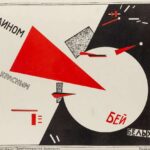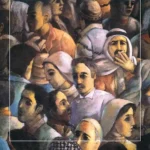Given the ongoing events in Israel-Palestine, I wanted to take a moment to provide some historical background about the history of the State of Israel and its relationships with Palestinians and Jewish people both. To that end, this piece tackles two popular mythologies underpinning the Israeli justifications for the horrifying crimes they are committing against the Palestinians in the Gaza Strip, starting in response to the first Palestinian Resistance insurgency earlier this month. These mythologies provide the ideological framing for a system which Human Rights organizations across the globe have likened to apartheid and are used to delegitimize the Palestinian people’s anti-colonial struggle.
We have all heard the Israeli perspective on the issues at hand—the descriptions of Palestinian violence as inexplicable and enigmatic, the references to the “animal” “violent instincts” of the Palestinians, the characterizations of Hamas as a terrorist group with the sole purpose of murdering Israelis, and so on and so forth. I do not deny that, during the initialinsurgency and since, Hamas operatives have killed a number of Israeli civilians—likely numbering near 1,300 as of today (October 12). I do not condone this, nor am I blind to it. I fully understand the need to mourn over those Israeli civilians tragically killed, especially by their families and those close to them. But no deaths could justify the ongoing mass destruction in the Gaza Strip by the Israeli state and military, or the profound cruelty and contempt with which Western governments and media establishments speak of the Palestinian people as a whole. The situation is far more complicated than the Israeli story is willing to allow in its attempt to justify bombing entire neighborhoods and cutting off food, water, and electricity to the 2 million people (including hundreds of thousands of children) residing in the Gaza Strip. Already, over 4,000 civilians have been murdered by Israeli airstrikes in the Strip, including over 1,000 children (that we know of so far). Hospitals have been bombed and dozens of aid workers have been killed in attacks by the Israeli Defense Forces. Let’s be clear: this is genocide.
The incursion from the Strip has been characterized by some as Israel’s 9/11, due to the number of civilians killed within such a short period by Hamas and other resistance forces. It is also Israel’s 9/11 in another way: it is already being used as a pretext for horrific mass-murder. And, again like 9/11, it is being exploited to shut down any who dare speak up against the compounding of tragedy. As David Klion explains in n+1, “To foreground the suffering of the Americans in the Twin Towers was obligatory; to acknowledge the past, present, or future victims of American violence abroad was at best awkward; to imply these things might be related was something almost no one wanted to hear when it might have made any difference” (Klion, “Have We Learned Nothing?”). The situation following the incursion into Israel looks eerily similar.
The ideology being used to justify the Israeli state’s genocidal actions today is nothing new—Israel and its supporters have a long history of constructing myths in order to justify and forestall criticism of Israeli war crimes and human rights abuses. Here, I would like to focus on two of those myths. Firstly, I will discuss the myth of universally peace-seeking Israeli state forced into violence as a result of Palestinian refusal to cooperate. Secondly, I will discuss the myth that the State of Israel is representative of all Judaism across the globe, and therefore that criticism of the Israeli state is by necessity anti-Semitic in character.
Myth #1: Palestinian intransigence is the primary obstacle to peace.
There are two component myths that allow the myth of perpetual Palestinian intransigence to flourish: firstly, the myth of an Israeli state eager and waiting for peace, if only the Palestinians would cooperate; and, secondly, the myth of a Palestinian leadership and people inexplicably bent on forestalling the possibility of peace by any means. Here I investigate the first component myth.
Throughout the past years, the Hamas movement has been the primary target for accusations of Palestinian intransigence. But where did Hamas come from? How did it become such a powerful force in the Gaza Strip? Until the late 1980s, Palestinian political power in the Gaza Strip was held by the Fatah movement, a secular national movement which, beginning in the 1970s, supported a two-state solution and the creation of a democratic Palestinian state. Israel was fearful of the secular elements of Palestinian society, especially those with revolutionary left-wing elements. Fatah—as well as the broader Palestinian Liberation Organization (PLO) of which it was a part—especially concerned Israeli military and government agents, due to their use of guerrilla warfare tactics popular amongst leftist insurgents.
As part of its anti-Fatah efforts, Israel provided funding and strategic support to an educational and charitable movement starting in 1979: Sheikh Ahmed Yassin’s Islamic Society. Yassin’s Islamic Society would, in 1988, transform into the movement now called Hamas. As the Washington Post argued in 2014: “Yassin’s [Islamic Society] would become Hamas, which, it can be argued, was Israel’s Taliban: an Islamist group whose antecedents had been laid down by the West in a battle against a leftist enemy” (Tharoor, “How Israel helped create Hamas”). It is unclear, however, if the Israeli state truly regrets its contributions to the Hamas movement. As recently as 2019, Israeli Prime Minister Benjamin Netanyahu has been recorded making statements such as: “anyone who wants to thwart the establishment of a Palestinian state has to support bolstering Hamas and transferring money to Hamas. This is part of our strategy—to isolate the Palestinians in Gaza from the Palestinians in the West Bank” (Weitz, “Another Concept Implodes”). Times of Israel columnist Tal Schneider, in an article from October 8—just after the initial Palestinian incursion—explains that, over the past few decades, Israeli policy has de facto treated Hamas as a useful asset, propping it up in hopes of preventing reconciliation between Palestinian leadership in the West Bank and the Gaza Strip (Schneider, “Netanyahu propped up Hamas”).
It is evident that Israel itself has played a significant role in creating the Palestinian resistance organization least likely to consider working with the Israeli state towards peace. Why? Because the State of Israel does not want peace unless it is entirely on its own unjust terms. Let us look at several other cases further evincing Israel’s own intransigence.
Let’s start from beginning, with the first Prime Minister of Israel, David Ben-Gurion, who refused to enter into talks regarding the repatriation of Palestinians expelled during the 1948 Nakba—the mass expulsion of 700,000 Palestinians from their homes through a mix of violence, intimidation, and fear, ending in the destruction of 531 villages, eleven urban neighborhoods, numerous massacres, and placement of Palestinian men and boys over ten in labor camps for more than a year (Pappe, Ethnic Cleansing). Ben-Gurion not only refused to enter talks over this world-historical campaign of uninhibited colonial violence; he further declared that Israel had not gone far enough, lamenting the decision not to maintain control over the West Bank (Pappe, Ten Myths).
Not long after the Nakba ended, Israel refused to comply with Resolution 194 of the UN General Assembly, a peace plan adopted in 1948 which included provisions for (1) renegotiating partition to better account for the needs of Palestinians, (2) the right for all Nakba refugees to return to their homes, and (3) the transformation of Jerusalem into internationally held territory (Schlaim, The Iron Wall). After all, accepting the UN’s peace plan would mean giving up the demographic dominance of Jewish over Palestinian people in the newly formed State. David Ben-Gurion and his allies in government would not accept such a sacrifice. Even a 60% Jewish majority was not enough for him. None of this thinking was exclusive to Ben-Gurion: anti-Arab ethnonationalism guides Israeli decision making for up to this very moment (Sa’di, “Incorporation”) and has accelerated over the past decades under the leadership of neo-Zionist parties and politicians.
Israel again refused to heed international concerns after the June 1967 War. This time, binding UN Security Council Resolution 242 demanded Israel’s immediate withdrawal from all territories occupied during the war. Israel categorically refused to accept the terms of the Resolution. They did not let go of the West Bank, the Gaza Strip, or what they termed the territory of Greater Jerusalem. However, the new territory posed a problem for the ethnonationalist Israeli government. They would not accept bringing in so many Palestinian citizens and upsetting the demographic balance they had worked so hard to create. Thus, the Palestinian people of the West Bank and the Gaza Strip were neither allowed citizenship nor independence. Ever since, Israel has continued to flagrantly and in plain view tear apart the lives of Palestinians in the West Bank and Gaza Strip. Israeli historian Haim Bresheeth-Zabner elaborates in detail:
Israel has built an enormous network of illegal settlements, covering the OPT with more than 750,000 Jewish settlers and a network of roads that exclude Palestinians. It took control of all resources, periodically denying Palestinians water and electricity, and limited the supply of food and medicines for long periods. It slaughtered many thousands of Palestinians for no apparent reason. It installed hundreds of checkpoints disabling daily life and destroyed Palestinian infrastructure—water, electricity, telephone lines, and roads. To cap it all, it has built the longest and largest separation wall in modern times, one clearly visible from outer space (Haim, An Army Like No Other).
It is in response to these horrendous injustices—these processes of ethnic cleansing—that the Palestinian Resistance, including Hamas and several other revolutionary organizations, has recently taken up arms. And it is in this context that we can better contextualize the brutality of some of their actions: for decades, the Palestinian people have lived under horrific conditions, constantly at risk of death and surrounded by the indiscriminate violence of the IDF and the settlers, who widely view the Palestinians as something less-than-human. What is described by Israel, the U.S. government, and nearly every major media source in the U.S. as senseless violence is in reality something else entirely: blowback.
Everything I have discussed only covers a few of the innumerable ways in which theState of Israel, in spite of its rhetoric, stands directly in opposition to the attainment of true and just peace with the Palestinian people. After all: how can one negotiate with terrorists or terrorists-in-training, which Palestinians have always already been in the eyes of the Israeli state and military? How does one negotiate with a people who have been (and still commonly are) likened to “a disease that threatened to kill a healthy body,” and “a cancer at the heart of the nation” (Pappe, The Idea of Israel)? No matter how many times Israel claims it wants peace, its actual actions on the ground argue exactly the opposite.
Myth #2: Zionism = Judaism
All of us have heard the accusation: “anti-Zionism is anti-Semitism.” After all, the State of Israel supposedly represents all Jewish people internationally. Or does it? I would argue that this conception of Zionism as equivalent to Judaism as such is mythological in that it obfuscates the fact that modern Zionism is modern, a product of late 19th and 20th century global developments, and which in many ways marked a break with popular Judaism across the world up to that point. Furthermore, the conception of Zionism as Judaism and vice versa erases modern Jewish opposition to the State of Israel and the Zionist project.
The socio-political movement of Zionism originated in the late 19th century. It mirrored many other global changes, including the enlightenment, the 1848 Spring of Nations, and utopian socialism (Pappe, Ten Myths), in response to the dangers of anti-Semitic nationalism in Western Europe. Zionist trailblazer Theodore Herzl managed to get the Zionist movement international recognition by the end of the 19th century. As he put it, a Jewish state settled primarily from Western Europe would “form a portion of a rampart of Europe against Asia, an outpost of civilization as opposed to barbarism” (Lloyd, “Settler Colonialism”). Thus, not only would Palestine become a national home for the Jewish people, but it would also open up access to the Orient and forestall the threat to the West posed by what, to Herzl and his comrades, was an undifferentiated mass of savage Arabs. From the beginning, Zionism was envisioned as a settler colonial project underlaid by deep anti-Arab racism.
Herzl and his fellow Zionists were not the only popularizers: many Christians were (and still are) highly favorable to the Zionist movement, thanks to the popular belief that the Jewish people must all return to their “ancestral homeland” in order to trigger the End Times. Anti-Semitic Western European governments, especially the British government, also supported the Zionist movement. Imperial Britain specifically felt that Zionism fit well with its geostrategic impulses to extend its reach further into the Middle East; thus, it issued the Balfour Declaration of 1917, which declared the creation of a “national home” for the Jewish people in Palestine. Other anti-Semitic governments were favorable to Zionism explicitly because it got Jewish people out of their countries. However, especially early on, Zionism was far less popular amongst the majority of Jewish communities.
The Balfour Declaration was far more popular amongst Christian Zionists than even Jewish Zionists themselves, and it was even less popular amongst the non-Zionist majority of Jewish people across the globe (Jeffries, Palestine). Members of the Jewish Bund in Russia, a popular socialist movement, argued that a revolution in Europe would be far preferable for the Jewish cause to the formation of a modern nation-state in Palestine. Liberal Jews “regarded Zionism as a fanciful movement that provided no answer to the problems of the Jews in Europe” (Pappe, Ten Myths). Orthodox Jews opposed Zionism on a religious basis, arguing that the Jewish people ought to wait for the coming of the Messiah to guide them out of exile. To be sure, it was relatively normal pre-Zionism for Jewish people to consider themselves as having a distinct historical relationship with the land of Palestine, especially the city of Jerusalem. However, for the vast majority, that relationship did not translate into a wish to settle the area, and the few who did desire to settle the area did so by integrating themselves into the existing Palestinian society.
While Zionism is more widely popular today amongst Jewish people, especially American and Western European Jews, many still decry the ways in which their history and their religion are exploited by the State of Israel to justify its genocidal acts against Palestinians. In this respect, books such as Norman Finkelstein’s The Holocaust Industry: Reflections on the Exploitation of Jewish Suffering, which chronicles how Israel invokes the Holocaust to defend its atrocious record on human rights, have paved the path for Jewish criticism of Israel. Other American Jews, such as Jewish Currents editor-at-large Peter Beinart and the anti-Zionist Jewish organization Jewish Voice for Peace have taken up the mantle of criticizing Israel for its profoundly inhumane treatment of the Palestinian people. Peter Beinart has, in his long career as a journalist, has compared Israeli rhetoric on Palestine to Russian rhetoric on Ukraine (Beinart, “Justifications”) and argued that, for American Christians, Zionism and anti-Semitism go hand-in-hand (Beinart, “Antisemitic Zionists”). American Jewish writer Joshua P. Hill recently framed his specifically Jewish opposition to Zionism like this:
I can tell you with great confidence that the Jewish people have a long history of being expelled from one land after another, one home after another, of being attacked and persecuted and killed. But there are multiple ways to respond to that history. We can hold deeply to the idea that no one should ever experience what we have been subjected to, or we can turn and say that we must protect ourselves at all costs, even if it means hurting others the way we’ve been hurt. And the state of Israel in many ways chose the latter (Hill, “A Jewish Case”).
Not only are there plenty of Jewish people who stand firm in their opposition the State of Israel despite immense pressure otherwise; but, as the above quote indicates, the historical oppression of Jewish people offers resources which open up opportunities for even deeper solidarity with the suffering of Palestinians under occupation.
In the 1990s, an explosion of works by Israeli academics—which have now been aggressively suppressed by the neo-Zionist regime of today—took advantage of their access to historical archives to cast doubt on the founding myths of Zionism. They documented, among other things, the way Zionist intellectuals attempted to collaborate with the early Nazi state to bringexpelled Jews exclusively to Palestine (Segev, The Seventh Million); the way in which leading Israelis and Israeli popular culture continue to draw “a clear contrast between the new ‘brave’ Jews of Israel and those who went ‘willingly’ to the slaughter in Europe’s extermination camps” (Pappe, The Idea of Israel); and the way in which early settlers and major figures in the Israeli military and government explicitly considered Zionism a colonial project predicated on the ethnic cleansing of Palestinians (Haim, An Army Like No Other).
All of this forces us to abandon the false equation of Zionism with Judaism, or anti-Zionism with anti-Semitism. Zionism represents the beliefs of many Jewish people in the modern day, but not all. The many Jewish people who do oppose the Israeli project of colonialism and ethnic cleansing deserve to be taken seriously, not dismissed out of hand as self-hating or lacking in commitment to their community.
Let us stand in solidarity with those killed during this nightmarish conflict, especially the 2 million in Gaza trapped as their homes are turned to rubble and their families are decimated by bombs, bullets, and deprivation.
Works Cited:
Bresheeth-Zabner, Haim (2020). An Army Like No Other: How the Israel Defense Forces Made a Nation. Verso Books.
David Klion, “Have We Learned Nothing?” n+1, October 11, 2023.
Finkelstein, Norman (2003). “The Holocaust Industry: Reflections on the Exploitation of Jewish Suffering. Verso Books.
Gidi Weitz, “Another Concept Implodes: Israel Can’t Be Managed by a Criminal Defendant,”Haaretz, October 9, 2023.
Ishan Tharoor, “How Israel helped create Hamas,” The Washington Post, July 30, 2014.
Pappe, Ilan (2016). The Idea of Israel: A History of Power and Knowledge. Verso Books.
Pappe, Ilan (2007). The Ethnic Cleansing of Palestine. Oneworld Publications, Second edition.
Jeffries, J. M. N. (2017). Palestine: The Reality. Skyscraper Publications.
Joshua P. Hill, “A Jewish Case Against Zionism,” New Means, October 8, 2023.
Lloyd, David. “Settler Colonialism and the State of Exception: The Example of Palestine/Israel.” Settler Colonial Studies 2:1 (2012), pp 59-80.
Pappe, Ilan (2017). Ten Myths About Israel. Verso Books.
Pappe, Ilan (2016). The Idea of Israel: A History of Power and Knowledge. Verso Books.
Pappe, Ilan (2007). The Ethnic Cleansing of Palestine. Oneworld Publications, Second edition.
Peter Beinart, “Antisemitic Zionists Aren’t a Contradiction in Terms,” Jewish Currents, January 10, 2023.
Peter Beinart, “Justifications for Destroying a People,” Jewish Currents, March 8, 2022.
Sa’adi, Ahmad. “The Incorporation of the Palestinian Minority by the Israeli State, 1948-1970: On
the Nature, Transformation, and Constraints of Collaboration” Social Text, 21:2 (2003), pp. 75-94.
Schlaim, Ava (2001). The Iron Wall: Israel and the Arab World. W. W. Nortion & Company.
Segev, Tom (2000). The Seventh Million: The Israelis and the Holocaust. Picador.
Tal Schneider, “For years, Netanyahu propped up Hamas. Now it’s blown up in our faces,” The Times of Israel, October 8, 2023.




Leave a Reply